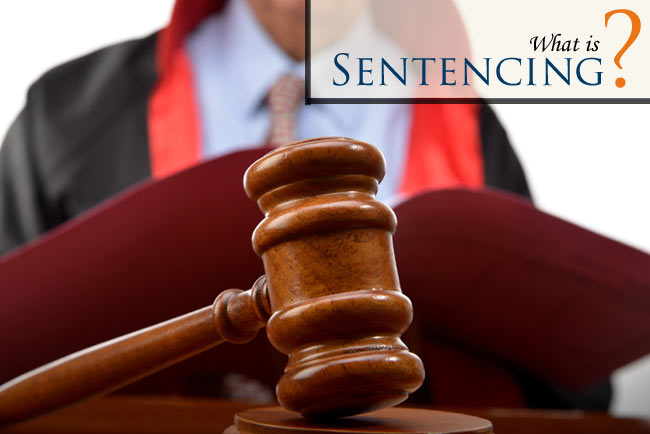
Considerations for Judges at Sentencing
Judges in Larimer, Boulder, and Grand County face the serious responsibility of sentencing men and women who plead guilty or who are found guilty of a crime. They try to weigh the difficult balance between keeping the public happy and sentencing harshly, which fills up jails and prisons. Ultimately, judges want to have long and prosperous careers, and public opinion plays a big role at the judge’s retention vote. Judges who are seen as too harsh or too easy can have a shortened career when citizens do not want to keep them on the bench. Because of this pressure, judges tend to seek the opinions of other judges, district attorneys and probation. They know it is safest to try to stay in line with those recommendations when sentencing.
Probation Officers at Sentencing: the PSI
Before a sentencing hearing, a judge will request a Pre-Sentence Investigation Report (PSI). This is when a probation officer meets with the defendant to ask questions and prepare a presentence report to provide to the judge. This report looks into the defendant, the facts of the case, and provides recommendations about sentencing. Included in the defendant’s PSI report are:
- Alcohol and substance abuse evaluations
- Criminal history
- Mental health evaluations
- Any test results in areas of concern
- Statements about what occurred in the case
- Police reports
- Law on possible sentence range
- Any limitations on the sentence by plea agreement or law
- The probation officer’s personal feelings on what should occur at sentencing
Other Professionals Providing Input for Sentencing
There are many other professionals who can prepare reports for the judge to consider during sentencing:
- Counselors
- Therapists
- Psychologists
- Psychiatrists
- Other Professionals
These professionals may work for or against the defendant. Reports on behalf of the victim can express the impact the crime had on their life, pushing for a harsher punishment. Reports on behalf of the defendant, expressing their desire to change and their continued treatment, would push for a less harsh sentence.
District Attorneys at Sentencing
The district attorney will always get to make a statement at the sentencing hearing. They will present all the negative information against a defendant and give their opinion about how the defendant should be punished. They will also request an amount for restitution.
Victims and Their Family at Sentencing
Victims and their families have the opportunity to make a statement at a defendant’s sentencing. This is a very dangerous and unpredictable part of sentencing. Usually, the victim gives a tearful statement, which describes all the pain and suffering because of the actions of the defendant. We have seen some victims who are reasonable, but most are angry and out to get revenge. Sometimes, a victim’s family members will also stand up and make statements on the victim’s behalf. Generally, these statements are to get a harsher punishment for the defendant.
The Defense at Sentencing
It is important for a defendant to have an experienced criminal defense attorney at their sentencing who understands everyone’s motives and role in the sentencing hearing. This Fort Collins, Loveland or Estes Park defense lawyer needs to understand the plea, and not ask for a sentence outside the confines of the law and the crime. The defendant’s attorney will ask the judge for a lower sentence based on the law, and the facts of the case, and interpretation of what really occurred. As criminal defense attorneys, we have witnesses talk, defendant’s family members speak, and professionals express their opinions. In a strategic way, we want to counter the government’s negative points. A good defense attorney will also help the defendant prepare what to say and not say.
A very important aspect of sentencing is for the defendant to make genuine statements and take full responsibility for their actions. They should never try and pass blame to anyone else, especially the victim. At sentencing, a defendant is given the opportunity to tell the judge why he or she should not get jail or prison time.
The Judge’s Options at Sentencing
Judges can sentence a defendant to probation or incarceration. For probation sentences, judges can impose conditions related to a defendant’s rehabilitation. These conditions may include:
- Mental health treatment
- Drug treatment
- Alcohol treatment
- Therapy with a counselor or therapist
- Medicines
- Employment
- Community Service
- Restitution
- Classes on victim empathy
- GPS monitoring
- Protection and Restraining Orders
- Seeing a Probation Officer
- Payment of Court Costs and Fines
- Jail as a Condition of Probation (up to 60 days for a misdemeanor, 90 days for a felony, or 2 years work release)
Basically, a judge can impose any stipulation to help ensure the defendant will not reoffend.
If the plea or guilty finding requires jail or prison time, a judge has only a few alternatives. Usually, a misdemeanor results in county jail and prison is for a felony. Judges do have the ability to sentence a defendant to Community Corrections instead of prison for some felonies. On a less serious case, they can sentence a defendant to in-home detention instead of jail time. Colorado statutes define and limit sentence ranges based on the felony or misdemeanor class. Violent crimes (like Robbery and Child Abuse) and Sex Offenses have mandatory minimums. For some sex offenses, judges are required to impose an indeterminate or life sentence.
Why You Need a Lawyer at Sentencing
Because of the importance of the sentencing hearing, you should never go alone. Judges have many options, and having someone by your side who knows all the rules can greatly help you. You need to be fully prepared for all the possibilities. The experienced criminal defense attorneys from the O’Malley Law Office have been conducting sentencing hearings for over twenty-five years. The best criminal defense lawyers can get you a lesser sentence.


